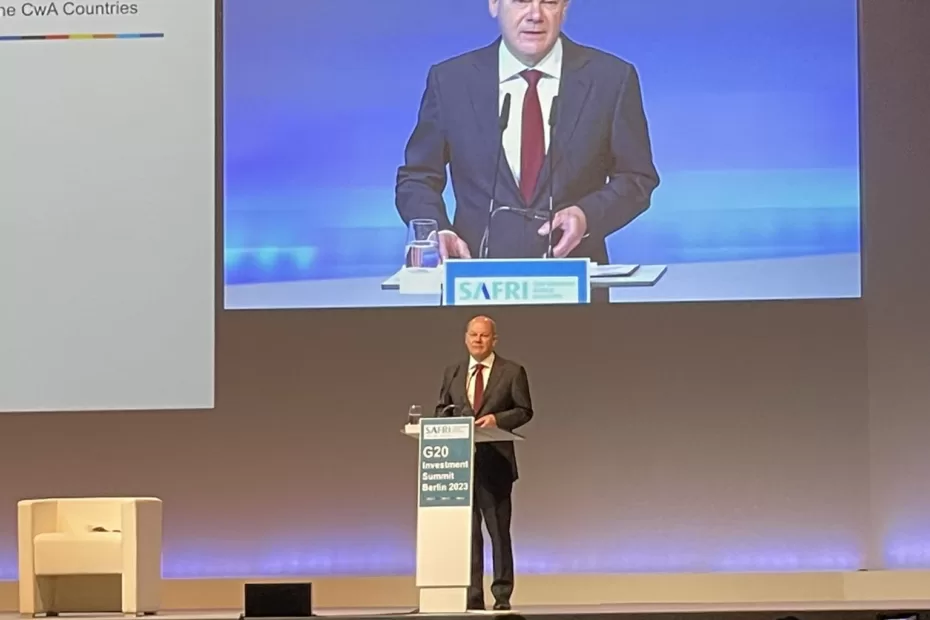German Chancellor Olaf Scholz on Monday, November 20 announced that Germany is committed to fund $4.4 billion in extra funding until 2030 for African new green energy initiative.
The German Chancellor was speaking during an investors’ conference in Berlin under the G20’s Compact with Africa initiative.
“This is not about development aid according to the outdated patterns of donors and recipients,” Scholz said Monday in a speech marking the opening of a Group of 20 investment summit in Berlin.
The gathering is part of the German government’s commitment to supporting African countries in making economic gains.
German Chancellor Olaf Scholz pledged the funds in order to support the Africa-EU Green Energy Initiative through 2030. Currently, Germany aims to import a large proportion of its green hydrogen needs from the continent.
Likewise, the gathering is also part of the Compact with Africa (CwA) initiative established during Germany’s 2017 presidency of the G20.
The German Chancellor stated that, the focus is on more trade. However, he also argued that such initiative like Climate change, need countries to work together.
Scholz urged African leaders attending the conference to speed up efforts to forge an African Continental Free Trade Area. Likewise, he said could create one of the world’s largest free-trade zones.
Also Read: All Set for Africa Climate Summit as Kenya and Germany Partner
African Investment Forum Members
Some 13 African countries have so far joined the initiative: Benin, Burkina Faso, Ivory Coast, the Democratic Republic of Congo, Egypt, Ethiopia, Ghana, Guinea, Morocco, Rwanda, Senegal, Togo and Tunisia. As one of Africa’s largest economies, South Africa holds the co-chairmanship.
Other countries, such as Angola, Zambia, Nigeria and Kenya, are attending the Berlin conference as guests.
The German Chancellor said the funds will be an important investment in Africa. The Investment would pay off for both sides as they gear towards Climate neutrality by 2045.
“This is about investments that pay off for both sides, For example, on the road to climate neutrality in 2045, we in Germany will need large quantities of green hydrogen and will import a large proportion of it from Africa,” Scholz told the delegates.
Also Read: Boost for Africa as Germany Commits $10.9 Million Through NEPAD
Focus on access, investments and energy efficiency
Currently, Africa is facing a paradox in the energy sector. The countries on the continent have some of the world’s richest sustainable energy resources. However, around 600 million people still lack access to electricity.
The EU has proposed to make energy access one of the main pillars of its Green Deal cooperation with Africa. More so, it will use it’s financial tools to ensure that green alliances are part of its Africa-relations.
The EU estimates that Africa can become a major global market for renewable energy. At the same time, required technological solutions are abundant.
Therefore, a move to support Africa green energy initiative will enormously increase the market potential for investors,”
“We want to continue to closely support this forward-looking project, which is why we are backing the negotiations and implementation of the agreement as the largest donor,” Scholz stated.

